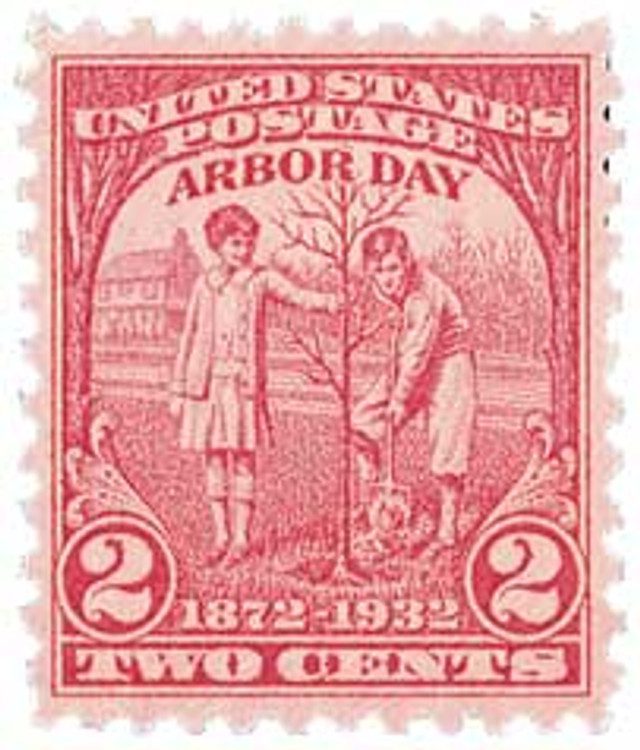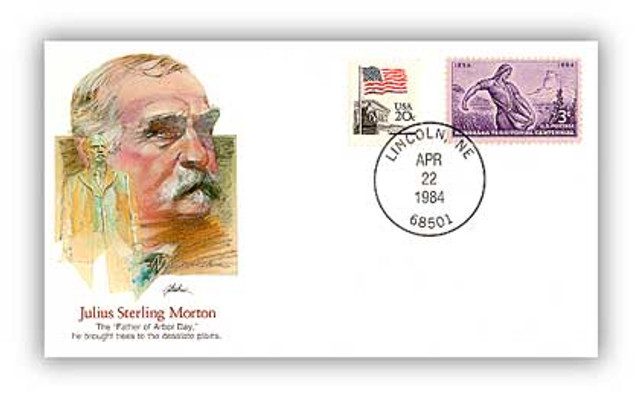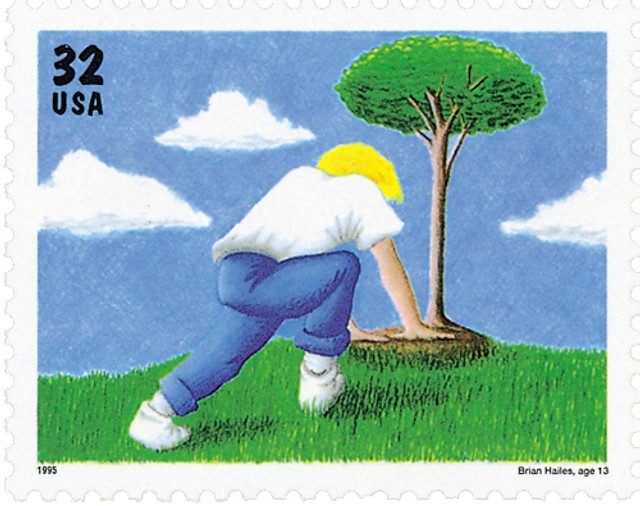On April 10, 1872, the first Arbor Day was held in Nebraska.
The man that founded Arbor Day, Julius Sterling Morton, was born on April 22, 1832, in Adams, New York. His family later moved to Michigan, where he attended college.
In 1854, Morton and his wife moved to Nebraska, which was not yet a territory. Staking a claim in Nebraska City, he soon took a job as editor of the local paper, the Nebraska City News. During this time he also briefly served in the Nebraska Territorial House of Representatives. In 1858, Morton was made secretary of the Nebraska Territory by President James Buchanan and later the acting governor.
Taking advantage of his success, Morton built a 52-room mansion that looks much like the White House. In the area surrounding the house, he planted several varieties of rare trees as well as heirloom apple trees. By this time he was a respected agriculturalist and began teaching people modern farming and forestry techniques.
Morton used his role as newspaper editor to share agricultural information with his readers, increasing local enthusiasm for trees. Soon, Morton began advocating planting more trees. He believed it would benefit both the landscape and economy. He began by planting orchards, shade trees, and windbreaks (rows of trees to protect from wind and soil erosion) on his own farm, and encouraged his neighbors to do the same.
On January 4, 1872, Morton first suggested a tree-planting holiday he called “Arbor Day” at a State Board of Agriculture meeting. The board agreed and selected April 10 of that year to be celebrated as the first Arbor Day. They offered prizes to counties and individuals that planted the most trees on that day. It’s estimated they planted over one million trees on that first Arbor Day.
While the people of Nebraska continued to celebrate Arbor Day, it wasn’t until 1885 that it became a legal holiday in the state. That year they also moved it to April 22, Morton’s birthday. The celebration that year was the largest one yet. About 1,000 Nebraska City school children planted several trees and then marched in a parade to the city’s opera house. They were joined along the way by townspeople, filling the city’s streets.
After the massive crowd arrived at the Opera House, Morton addressed the audience to wild applause. Of the event, the newspaper said, “To say that it was a complete success but faintly expresses it. A celebration of this kind is worthy of imitation by every school in the state.”
Over time, other states, and even countries, began celebrating Arbor Day, though now it is usually held on the last Friday in April. The National Arbor Day Foundation was founded on the 100th anniversary of that first planting, and has since planted over 200 million trees.
| FREE printable This Day in History album pages Download a PDF of today’s article. Get a binder or other supplies to create your This Day in History album. |
Discover what else happened on This Day in History.





I can’t resist. As Peppermint Patty said in “Peanuts:” “Arbor Day is the day when all the ships come back to the ‘arbor.”
More trees = less carbon in the atmosphere.